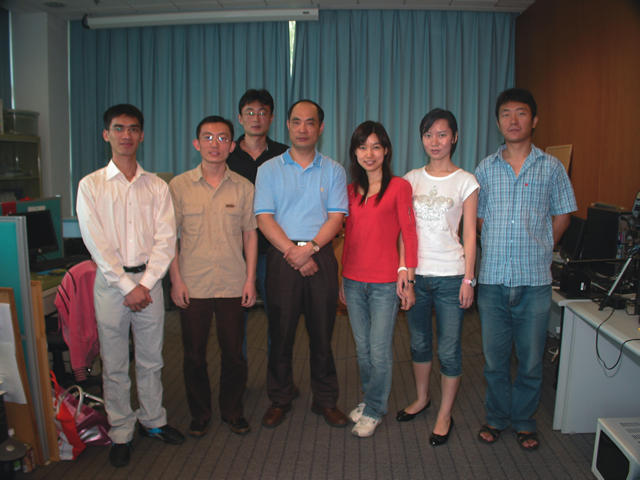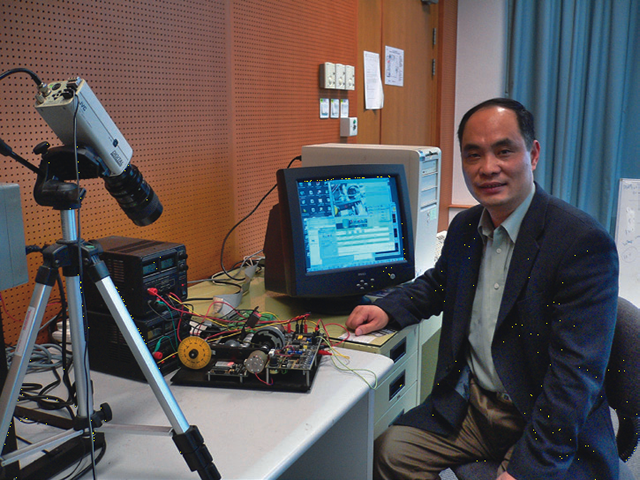|
Attitude control of spacecraft provides
the spacecraft the capabilities of rapid
acquisition, tracking, and pointing, and it
is also a benchmark control problem in the
control community. A common challenge in
spacecraft attitude control is the attenuation/
rejection of external disturbances caused by
control moment gyroscopes (CMGs) or by the
excitation of flexible appendages. Over the
past two decades, various advanced nonlinear
control methods have been proposed to
handle the attitude control and disturbance
rejection problem. For example, the sliding
model method was employed to regulate
attitude tracking errors into a small region of
the origin. Also, nonlinear H infinity optimal
or suboptimal control was applied to attenuate
the effect of the external disturbance to the
attitude of the spacecraft to some degree
quantified by the L2 gain, while achieving
global attitude tracking. However, this
approach can only completely reject such
disturbances with bounded energy.
In practical situations, external disturbances
may not be energy bounded. For example,
the disturbance caused by control moment
gyroscopes (CMGs) is modelled by a multitone
sinusoidal function which is not energy
bounded. In this project, we aimed to
consider the attitude tracking and disturbance
rejection problem of spacecraft systems
for such disturbance which is a multi-tone
sinusoidal function with arbitrarily unknown
amplitudes, unknown initial phases, and
unknown frequencies. For this purpose,
we first converted the attitude control and
disturbance rejection problem of the spacecraft
systems into an adaptive stabilization problem
of a so-called augmented system. This
process involves several coordinate and input
transformations and the use of internal model
design from the robust output regulation
theory to compensate for the unknown
external disturbance. The augmented system
is a complex nonlinear system containing
both time-varying static uncertainty and
dynamic uncertainty. Moreover, the dynamic
uncertainty is not input-to-state stable due
to the presence of some perturbation term.
Thus, the existing methods cannot handle
the stabilization problem of the augmented
system. To overcome this difficulty, we devised
a dynamic extension technique to obtain an
extended augmented system. This dynamic
extension eliminates the perturbation term
in the dynamic uncertainty of the extended
augmented system so that the dynamic
uncertainty of the extended augmented
system is input-to-state stable. As a result,
we have managed to solve the adaptive
stabilization problem of the extended
augmented system by combining some
techniques in adaptive control and robust
control, thus leading to the solution of the
attitude tracking and disturbance rejection
problem of spacecraft systems subject to a
multi-tone sinusoidal disturbance.
|
|
 Prof. Jie Huang and his research team.
Prof. Jie Huang and his research team.
 Prof. Jie Huang
Prof. Jie Huang
The attitude tracking and disturbance rejection
problem of a spacecraft system has been
extensively studied for more than two decades
by various approaches. But none of these
approaches can completely reject persistent
disturbance. Our investigation in this project
has led to the solution of a long standing flight
control problem. Additionally, the technique
developed in this project is also applicable to
the control of other practical systems such as
industrial robots and biomedical systems.
Prof Jie Huang
Department of Mechanical and
Automation Engineering
The Chinese University of Hong Kong
jhuang@mae.cuhk.edu.hk
|
